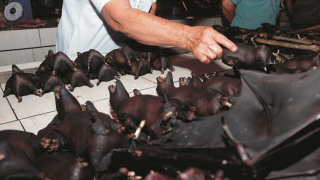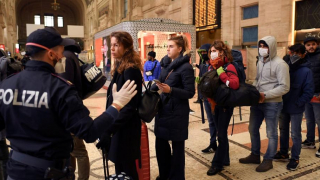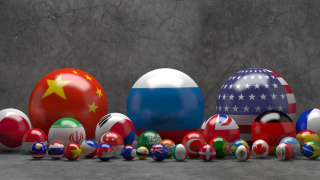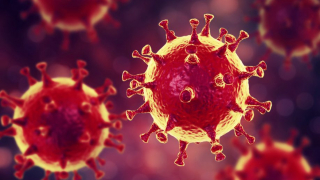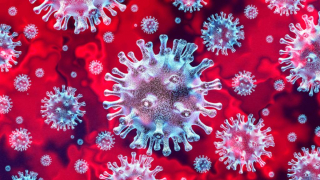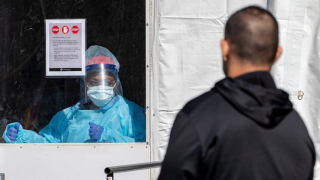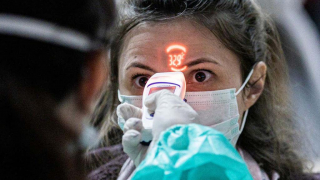The post-global order is an inevitability
The crisis that humanity is experiencing as a result of the Coronavirus pandemic has taken on such a global scale that a return to the situation that existed before is simply impossible.
If the spread of the virus is not stopped within a month and a half or two months, the process will become irreversible, and overnight the entire world order will collapse. History has seen similar periods which were associated with global world disasters, wars and other extraordinary circumstances.
If we try to look into the future with uncertainty and openness, we can predict some of the most likely scenarios or individual moments.
1. Globalization collapses definitively, rapidly and irrevocably. It has long been showing signs of crisis, but the epidemic has annihilated all of the major axioms: the openness of borders, the solidarity of societies, the effectiveness of existing economic institutions and the competence of ruling elites. Globalization has fallen ideologically (liberalism), economically (global networks) and politically (leadership of Western elites).
2. A new post-globalist (postliberal) world will be created on the rubble of globalism.
The sooner we recognize this particular turn, the more prepared we will be to cope with the new challenges. The situation is comparable to the last days of the USSR: the vast majority of the ruling Soviet class refused even to think about the possibility of transition to a new model of state, governance, and ideology, and only a very small minority realized the true nature of the crisis and prepared to adopt an alternative model. In a bipolar world, the collapse of one pole left only the other, and so a decision was to recognize its victory, copy its institutions and try to assimilate into its structures. This is what led to the globalization of the 90s and the unipolar world.
Today,this unipolar world is the one collapsing, a fact which has been recognized (in terms of ideology, economy and political order) by all the major world players, China, Russia and nearly everyone else, and has been met with new attempts at independence and better conditions. Consequently, the ruling elites face a more complex problem: the choice between a model crumbling into the abyss and the total unknown, in which nothing can serve as a model for building the future. One can imagine how desperate - even more so than in the late Soviet era - the ruling elites will cling to globalism and its structures in spite of the obvious collapse of all its mechanisms, instruments, institutions and structures.
Therefore, the number of those who can more or less freely navigate in the growing chaos will be quite small even among the elites. How the relationship between the globalists and post-globalists will develop is difficult to imagine, but it is already possible to anticipate in general terms the main points of post-globalist reality.
1. The open society will become a closed society. Sovereignty will become the highest and absolute value. Goodness is declared to be the salvation and life support of a concrete people within a concrete state. Power will be legitimate only if it can cope with this task: first, to save people's lives in the conditions of a pandemic and the catastrophic processes accompanying it, and then to organize a political, economic and ideological structure that allows it to defend the interests of this closed society in the face of others. This does not necessarily imply a war of all with all, but at the same time initially determines the main and absolute priority of this country and this people. No other ideological considerations will be able to override this principle.
2. A closed society must be autocratic. This means that it must be self-sufficient and independent of external suppliers in matters of food, industrial production, in its monetary and financial system, and its military power first of all. All this will become the main priorities in the fight against the epidemic, when states will be forced to close-- but in the post-globalist world this will become a permanent feature. If globalists see it as a temporary measure, post-globalists should, on the contrary, prepare for it to become a strategic priority.
3. Self-sufficiency in life support, resources, economy and politics must be combined with an effective foreign policy, where an alliance strategy comes to the fore. The most important thing is to have a sufficient number of strategically and geopolitically important allies that together form a potential bloc capable of providing all participants with effective resistance and a sufficiently reliable defense against probable foreign aggression. The same applies to economic and financial ties that expand the volume of available markets, not on a global but on a regional scale.
4. In order to ensure sovereignty and autonomy, it is important to establish control over those areas on which the sovereignty and security of each sovereign entity depends. This makes certain integration processes the geopolitical imperative. The existence of hostile enclaves in a threatening proximity of national territory (potentially or actual) will undermine defense and security. Therefore, already in the conditions of combating the epidemic, a certain model of integration should be envisaged and laid down.
The post-globalist world can be imagined in the form of several large centres and a number of secondary centres. Each major pole must meet the requirements of autarchy. It would be the analogue of traditional Empires. It would mean..:
- a single vertical system of rigid management (in a situation of crisis with the dictatorship of the highest power);
- full responsibility of the state and its institutions for the life and health of citizens;
- the assumption by the state of responsibility for the provision of food to its population under closed borders, which requires developed agriculture;
- the introduction of currency sovereignty, with the national currency pegged to gold or commodity cover (i.e. the real economy) rather than the world reserve system;
- ensuring a high rate of development of national industry sufficient to compete effectively with other closed States (which does not exclude cooperation, but only when the principle of independence and industrial autarky is not affected);
- creation of an efficient military industry and the necessary scientific and production infrastructure;
- control and maintenance of the transport and communication system that ensures communication between the individual territories of the state.
Obviously, in order to realize such extraordinary tasks, it is necessary to
- a very special elite (post-globalist political class)
- Accordingly, a completely new state ideology will need to be adopted (liberalism and globalism are not strongly suited for this).
The political class should be recruited from managers and employees of military institutions.
Ideology should reflect the historical cultural and religious characteristics of a particular society and have a futurological orientation - the projection of civilizational identity into the future.
It is important to note that almost all modern countries and blocs of countries - and those who are completely immersed in globalization and those who have tried to stay away from it - will have to go through something like this.
In this regard, it should be assumed that such processes will make the US one of the world's most important players at the same time it will change its content - from the citadel of globalization to a powerful autocratic entity defending only its own interests. Prerequisites for such a transformation are already contained in part in the program of Donald Trump, and in the fight against pandemics and states of emergency this will acquire even more distinct features.
France and Germany are also ready to follow the same path - so far, under emergency measures, other European powers are already heading in this direction. As the crisis deepens and lengthens, these processes will become increasingly closer to what we have outlined.
China is relatively ready for such a turnaround, ideologically and politically, as a rigidly centralized state with a pronounced vertical of power. China is losing a lot with the collapse of globalization, which it has managed to put at the service of its national interests, but in general, it has always placed special emphasis on autarky, which it has not overlooked even during periods of maximum openness.
There are prerequisites in place for such a post-globalistic evolution in Iran, Pakistan and partly Turkey, which could become the poles of the Islamic world.
India, which is rapidly reviving its national identity, began to actively restore ties with friendly countries of the region in the context of the pandemic, preparing for the new processes.
Russia also has a number of positive aspects in these starting conditions:
- Putin's policy over the last two decades to strengthen its sovereignty;
- the availability of serious military power;
- historical precedents of full or relative autarky;
- traditions of ideological and political independence;
- strong national and religious identities;
- recognition by the majority of the legitimacy of the centralist and paternalist model of governance.
However, the existing ruling elite, which was formed in late Soviet and post-Soviet times, is not meeting the challenge of time at all, being the heir to the bipolar and unipolar (globalist) world order and its related thinking. Economically, financially, ideologically and technologically, Russia is too closely connected to the globalist structure, which in many ways makes it unprepared to effectively confront the epidemic: if it turns from a short-term emergency into the creation of a new - and irreversibly post-globalist - world order. These elites share a liberal ideology and base their activities to some extent on transnational structures - resource sales, delocalization of industry, dependence on foreign goods and products, inclusion in the global financial system with the recognition of the dollar as a reserve currency, etc. Neither in their skills, nor in their worldview, nor in their political and administrative culture, are these elites capable of shepherding the transition to the new state. However, this state of affairs is common to the overwhelming majority of countries, where globalization and liberalism have until recently been considered indestructible and irrefutable dogmas. In this case, Russia has a chance to change the state of affairs, reading the state and society to enter the new post-globalist order.


